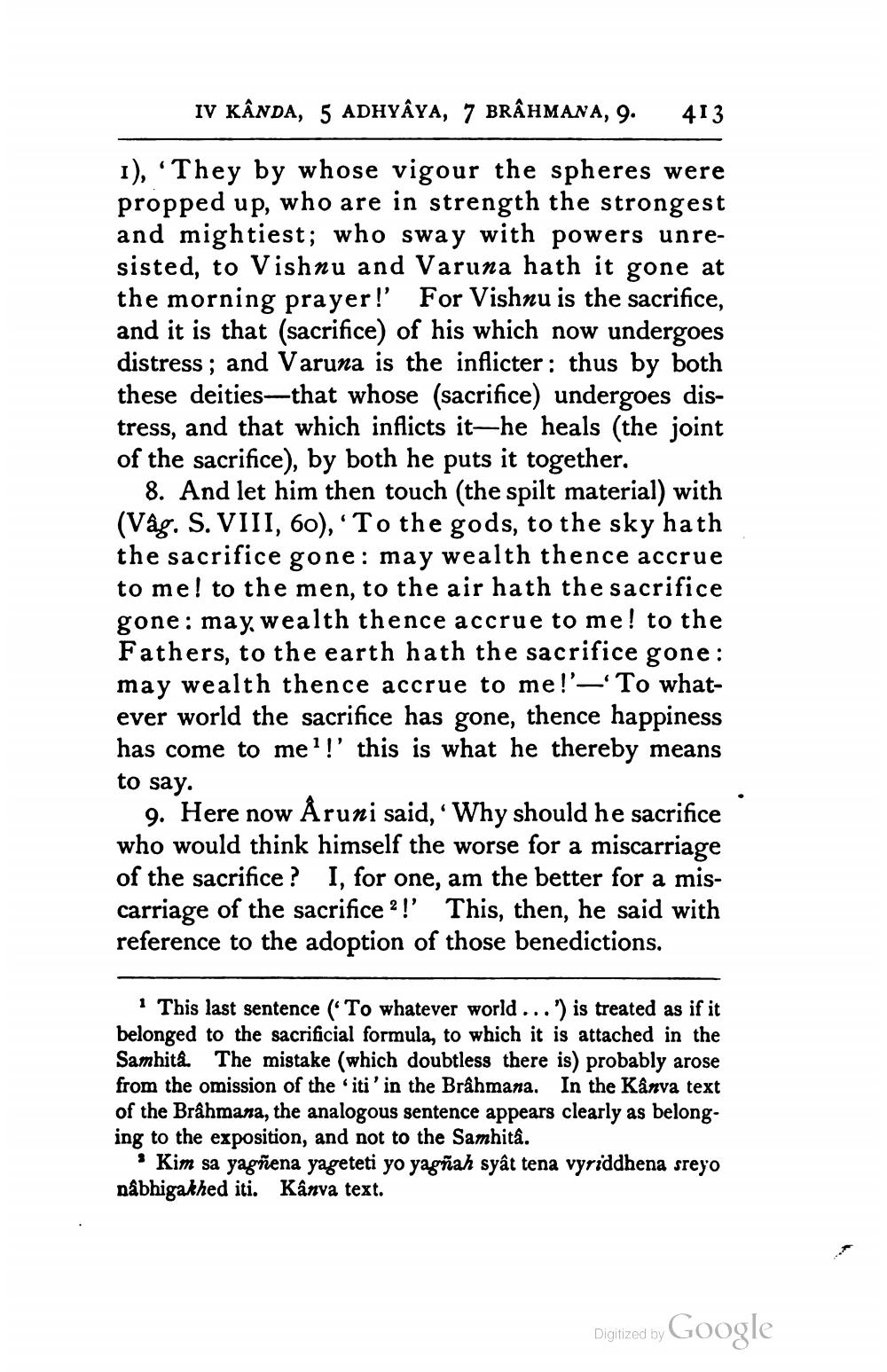________________
IV KANDA, 5 ADHYAYA, 7 BRAHMANA, 9. 413
1), 'They by whose vigour the spheres were propped up, who are in strength the strongest and mightiest; who sway with powers unresisted, to Vishnu and Varuna hath it gone at the morning prayer!' For Vishnu is the sacrifice, and it is that (sacrifice) of his which now undergoes distress; and Varuna is the inflicter: thus by both these deities-that whose (sacrifice) undergoes distress, and that which inflicts it-he heals (the joint of the sacrifice), by both he puts it together.
8. And let him then touch (the spilt material) with (Vâg. S. VIII, 60), 'To the gods, to the sky hath the sacrifice gone: may wealth thence accrue to me! to the men, to the air hath the sacrifice gone: may, wealth thence accrue to me! to the Fathers, to the earth hath the sacrifice gone: may wealth thence accrue to me!'-'To whatever world the sacrifice has gone, thence happiness has come to me'!' this is what he thereby means to say.
9. Here now Aruni said, 'Why should he sacrifice who would think himself the worse for a miscarriage of the sacrifice? I, for one, am the better for a miscarriage of the sacrifice 2!' This, then, he said with reference to the adoption of those benedictions.
1 This last sentence (To whatever world...') is treated as if it belonged to the sacrificial formula, to which it is attached in the Samhita. The mistake (which doubtless there is) probably arose from the omission of the 'iti' in the Brâhmana. In the Kânva text of the Brahmana, the analogous sentence appears clearly as belonging to the exposition, and not to the Samhita.
Kim sa yagñena yageteti yo yagñah syât tena vyriddhena sreyo nâbhigakhed iti. Kânva text.
Digitized by
Google




